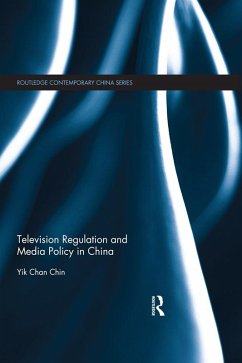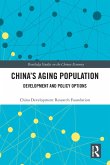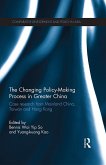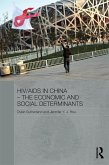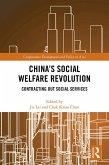This book studies the transformation of the policy and regulation of the Chinese television sector within a national political and economic context from 1996 to the present day. Taking a historical and sociological approach, it engages in the theoretical debates over the nature of the transformation of media in the authoritarian Chinese state; the implications of the ruling party's political legitimacy and China's central-local conflicts upon television policy-making and market structure; and the nature of the media modernisation process in a developing country. Its case studies include broadcasting systems in Shanghai and Guangdong, which demonstrate that varied polices and development strategies have been adopted by television stations, reflecting different local circumstances and needs.
Dieser Download kann aus rechtlichen Gründen nur mit Rechnungsadresse in A, B, BG, CY, CZ, D, DK, EW, E, FIN, F, GR, HR, H, IRL, I, LT, L, LR, M, NL, PL, P, R, S, SLO, SK ausgeliefert werden.

